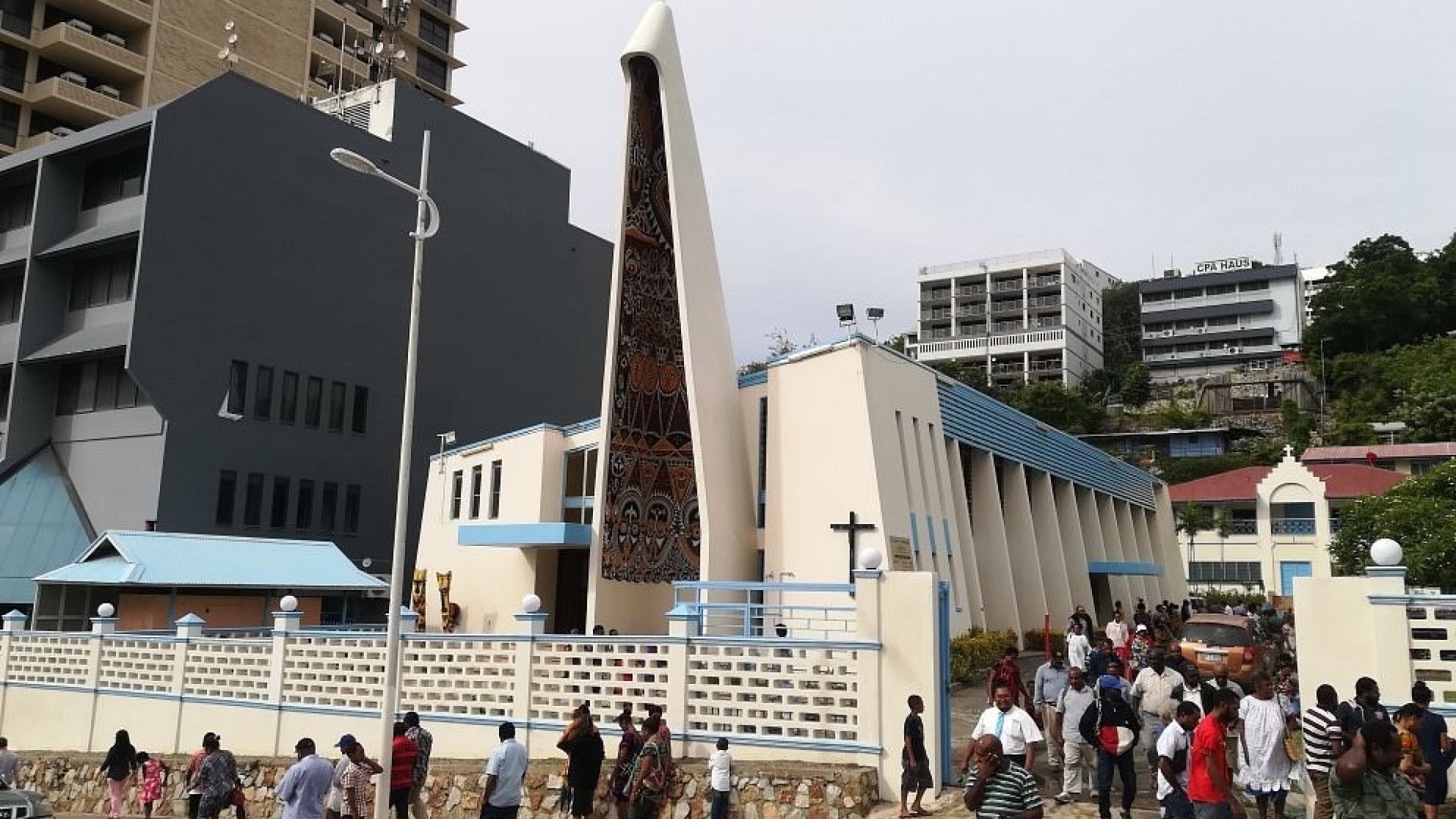Oceania: A Possible Destination for the Pope in 2024

St. Mary's Cathedral in Port Moresby
The news was disclosed on January 25, 2024 by the Minister of Foreign Affairs of Papua New Guinea. Pope Francis wants to visit this Oceanian country “for three days next August.” On the Vatican side, they remain cautious given the political situation in the country and the Sovereign Pontiff’s health.
The fact that Pope Francis wants to go to Papua New Guinea is not new. He has spoken about it several times, including in recent interviews with the press. He reaffirmed his desire to meet the Catholics of Papua New Guinea, representing a little more than a quarter of the population, but also those of East Timor and Indonesia: two states which were on the agenda of the sovereign pontiff in 2020, an agenda disrupted by the Covid-19 pandemic.
The announcement by the Papua Foreign Minister came a few days after the audience granted to the President of East Timor, Jose Ramos-Horta.
Whereas Catholicism has only been present since the end of the 19th century in Papua New Guinea, the situation is different in East Timor. The Portuguese brought the faith to the island in the 16th century, and despite the difficulties that punctuated the evangelization of this hostile country, 95% of the inhabitants today claim to be Catholic.
According to the Asianews agency, the apostolic trip to Oceania would also have another objective with a much more diplomatic scope: Singapore. It is a symbolic step which would have particular significance given the links existing between the city-state and China.
However, nothing has been definitively decided as yet. When questioned by the local media, the nunciature of Port Moresby (Papua New Guinea) did not want to make any official statements on this subject.
The director of the Holy See Press Room, Matteo Bruni, responded to questions from journalists on Thursday, January 25: “This is a very preliminary stage, with no precise indications of the countries to be visited.”
The Pope certainly wants to go to this region of the world, as he himself said; but it is easy to imagine that, when faced with such a long and complex itinerary, it might be difficult to project the agenda of Peter's successor well in advance, given his state of health, and the particular political context at hand this country in Oceania.
On January 10, 2024, riots broke out in the Papua capital after a “computer error” led to a default in payment of the salaries of civil servants. The stores were stormed, and in this climate of civil war, around fifteen people lost their lives.
The Cardinal Archbishop of Port-Moresby, John Ribat, strongly condemned the abuses committed by the rioters: “they did not set a good example and destroyed in a single day what we have built in forty-nine years of independence,” lamented the high prelate who also took the opportunity to criticize the authorities for their inaction in the face of the general increase in cost of basic necessities.
In a context of extreme tension, James Marape, the Papua Prime Minister, could face a vote of no confidence in Parliament in the coming weeks. Some wonder if the hasty announcement of a trip which, for the moment, remains in the realm of an hypothesis, might not be a means of creating a diversion by the government.
(Source : Asianews – FSSPX.Actualités)
Illustration : Owell Chua





